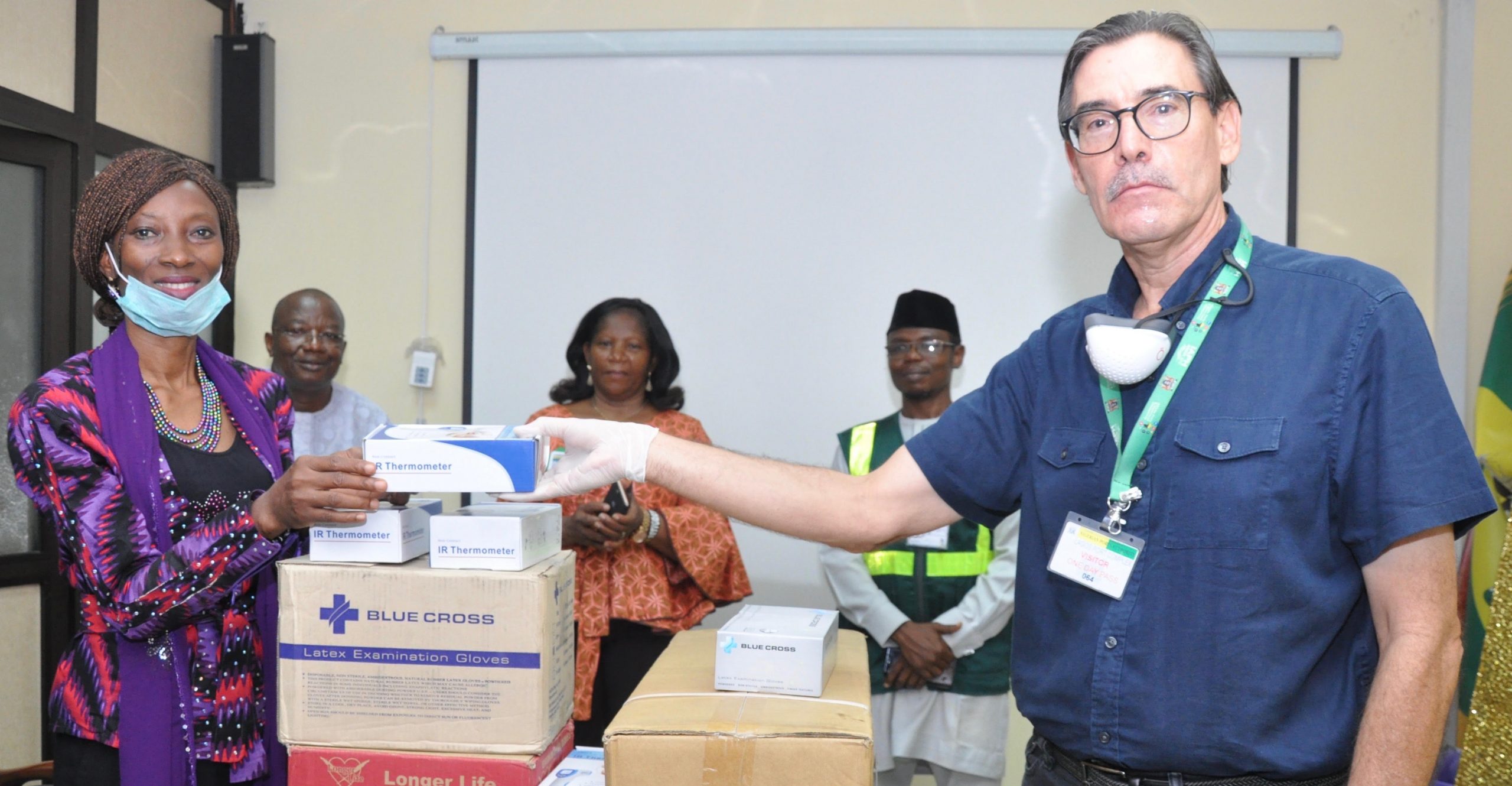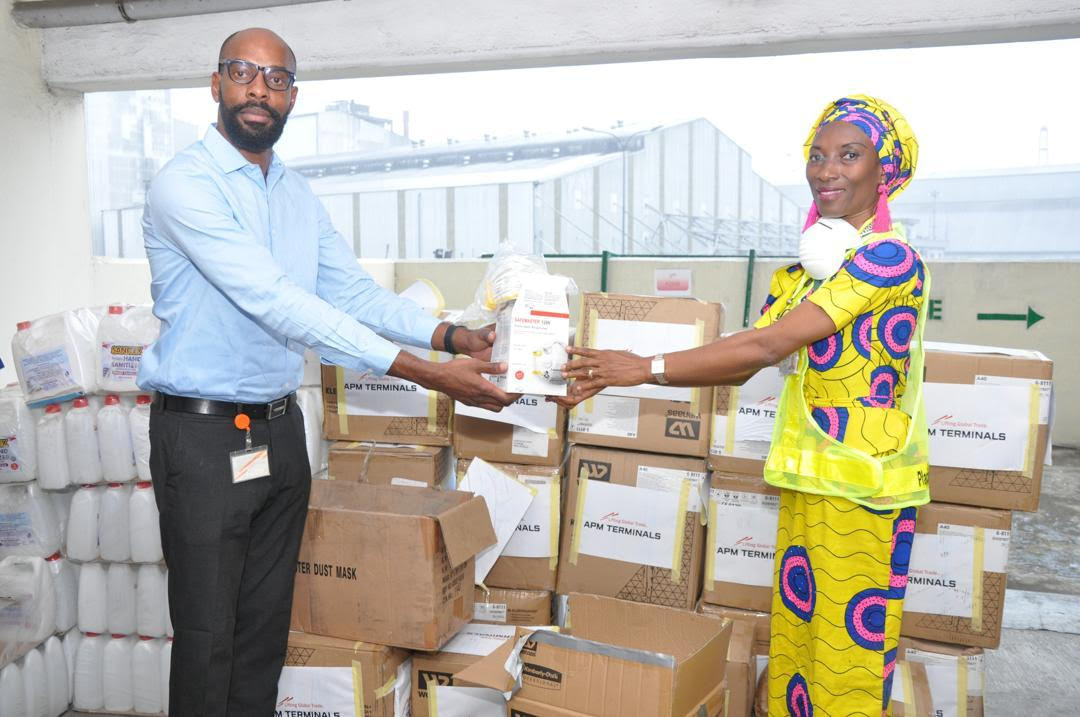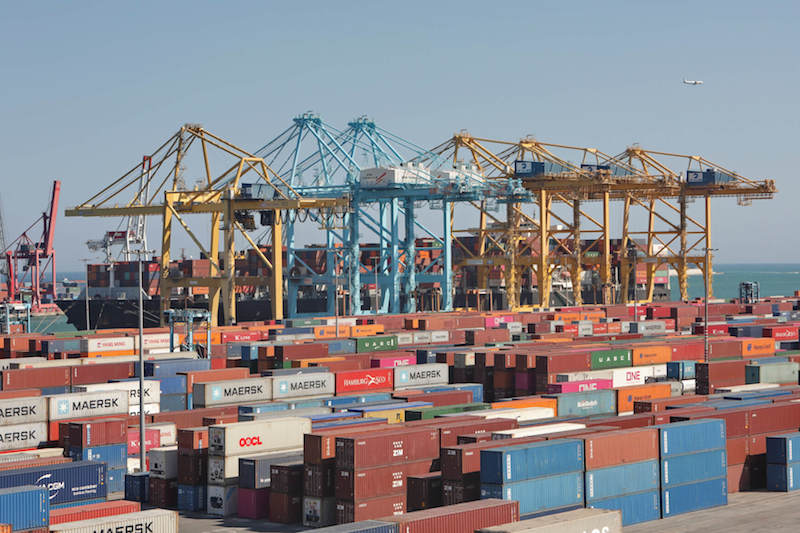Amidst severe strain on their limited resources, governments at the federal and state levels in Nigeria have been fighting the COVID-19 pandemic, which has continued to spread across the country. In this gruesome battle, operators of the country’s seaports terminals have proved themselves dependable allies. They have been holding the fort in the port industry while making significant contributions to both the federal and state governments.
With their contributions and high-level compliance to curtailment measures, they have been able to keep Nigeria’s port industry and shipping activities active, and relatively safe. Economically, they have ensured that Nigerian seaports remained open for shipping and port activities as directed by the federal government.
Across the globe, seaports are seen as critical infrastructures that should be allowed to operate even in the face of the rampaging coronavirus. Port operations are necessary in order to ensure uninterrupted supply of food, medicine and other essentials in the face of the pandemic. Also to ensure that the nation’s economy does not suffer total collapse, the ports have to remain open. Nigerian seaport terminal operators have ensured that this is done despite the lockdown of businesses and cities, and restriction of movement of people.
The terminal operators, being private sector operators, have braved all odds to keep the nation’s seaports running. One cannot imagine what would have been the case if port operations were still in the hands of the public sector, and not concessioned to these private sector operators who took over from NPA in 2006.
Apart from keeping the ports running, the concessionaires have been making substantial contributions towards the battle against the Covid-19 pandemic. In concrete terms, the terminal operators have collectively donated the sum of N700million to the federal government to support the efforts to curtail the spread of COVID-19 in Africa’s largest economy. A breakdown of their individual donations shows that APM Terminals Apapa Limited, ENL Consortium Limited and Apapa Bulk Terminal Limited (ABTL), all operating at the Lagos Port Complex, Apapa, donated N150 million, N70 million and N10 million respectively to the COVID-19 Relief Fund Account at the Central Bank of Nigeria (CBN). APM Terminals had also separately donated USD200,000 to the United Nations in Nigeria COVID-19 Basket Fund; chartered a flight to deliver vital health supplies to the country and spent N25 million on creating community awareness through the media as well as fliers to sensitise Nigerians about the pandemic.

Port and Terminal Multiservices Limited (PTML) and Tin Can Island Container Terminal (TICT) both at the Tin Can Island Port Complex donated N100million each while Port & Cargo Handling Services, Five Star Logistics, and Josepdam Port Services, who are also operators at the Tin Can Island Port Complex, donated N75million, N75million and N60million respectively. These are terminal operators operating in Lagos, the country’s economic nerve-centre. For seaport terminal operators outside Lagos, the West Africa Container Terminal (WACT), Onne Port donated N50million, while ECM Terminal, at Calabar Port donated N10million. These are in addition to the donations of large quantities of various personal protective items such as facemasks, hand gloves, coveralls, hand sanitizers and infrared thermometers to the Nigerian Ports Authority (NPA), Nigeria Customs Service (NCS) and other government agencies at the various port locations across the country.
Some of the terminal operators in Lagos also made handsome financial donations to the Lagos and Ogun States governments and the Nigerian Ports Authority. For instance, SIFAX Group, the parent company of Ports and Cargo Handling Services donated N15 million to the Lagos State government, N10 million to Ogun State government and N5 million to NPA.
“The world is facing its worst public health crisis in more than 100 years,” observed Princess Vicky Haastrup, Chairman of the Seaport Terminal Operators Association of Nigeria (STOAN). “This fight is not for the federal or state governments alone. The virus is an enemy that all of us must join hands together to fight.”
“The times are hard; shipping and port operations are badly affected by the pandemic, but we cannot close our eyes to the needs of the society, hence we tasked ourselves and made this sacrifice,” she said while speaking on the donations by the terminal operators.
To ensure that the ports are kept safe and fully operational, the terminal operators have displayed a high sense of responsibility by adopting several safety measures in addition to complying with the safety guidelines by the World Health Organization (WHO), the Nigerian Centre for Disease Control (NCDC), the Presidential Task Force on COVID-19, and other relevant authorities.

“Our terminal has remained fully operation as directed by the Federal Government with regards to the continuity of port operations,” the Managing Director of PTML Terminal, Ascanio Russo, said. In addition to total compliance with the safety guidelines by the various authorities mentioned above, Russo said “we also ensure the use of nose masks and hand gloves by all categories of workers, including contractors at our facility.”
“We have intensified the use of assigned personal protective gears at all terminal work locations, while ensuring social distancing by of crowd reduction at all our customer service points and reduction in the number of biometric access cards per agency.”

All these measures are also evident in all the port terminals. In addition, all the terminal operators have stepped up the use of electronic channels for business transactions while port users are being encouraged to use electronic platforms in all business transactions, “such that customers only come to the terminal for physical collection of cargo”.
With the electronic platforms, the consignees can obtain and pay provisional invoices at any quick teller enabled ATM machines and select banking platforms. The electronic payment options developed by the operators has enhanced prompt service delivery and ensured social distancing in line with safety measures introduced by government to curb the spread of the COVID-19.

As a matter of fact, the seaport terminal operators have stood as bulwarks in the battle against the COVID-19 pandemic, and the preservation of the economy from the destruction being wreaked by the pandemic. Gratifyingly, this much has been acknowledged by both the government and the port users.
